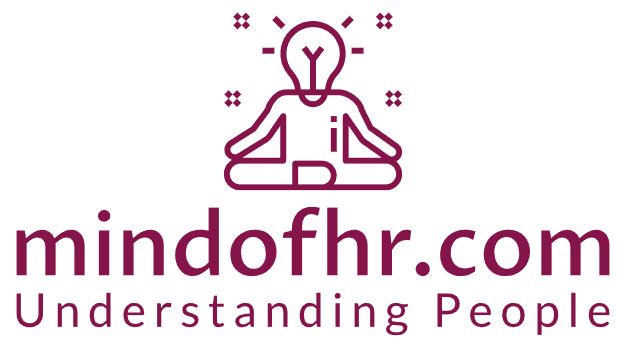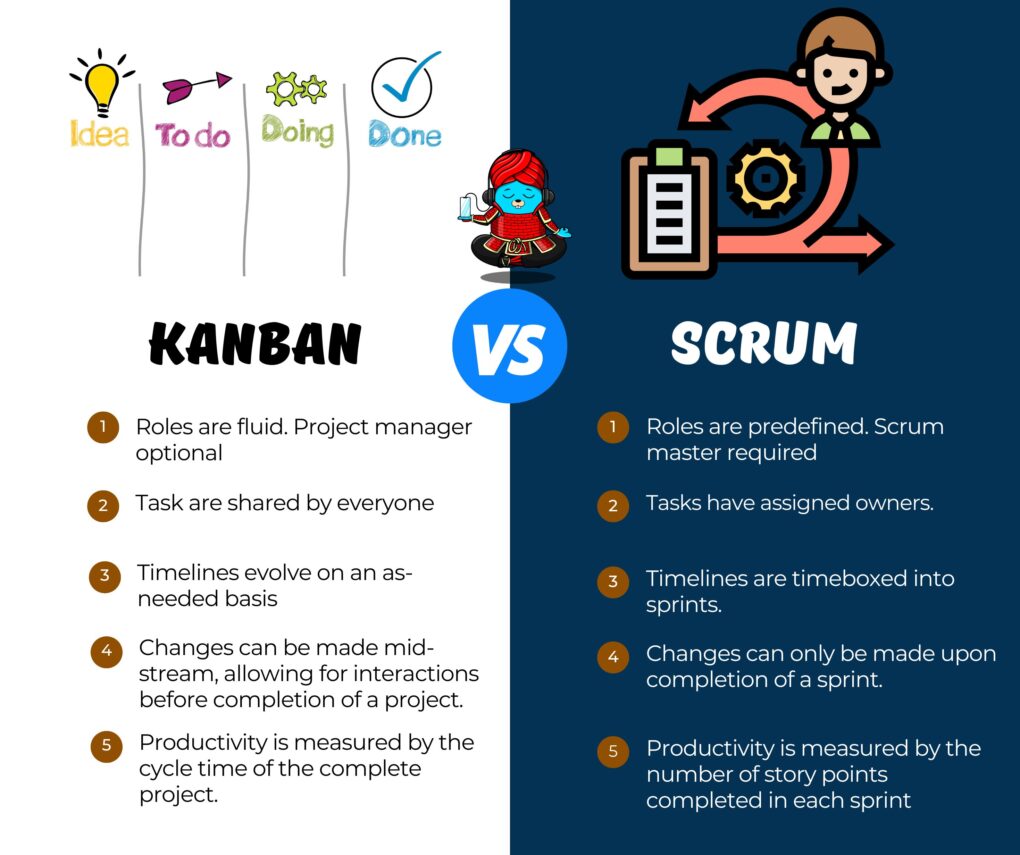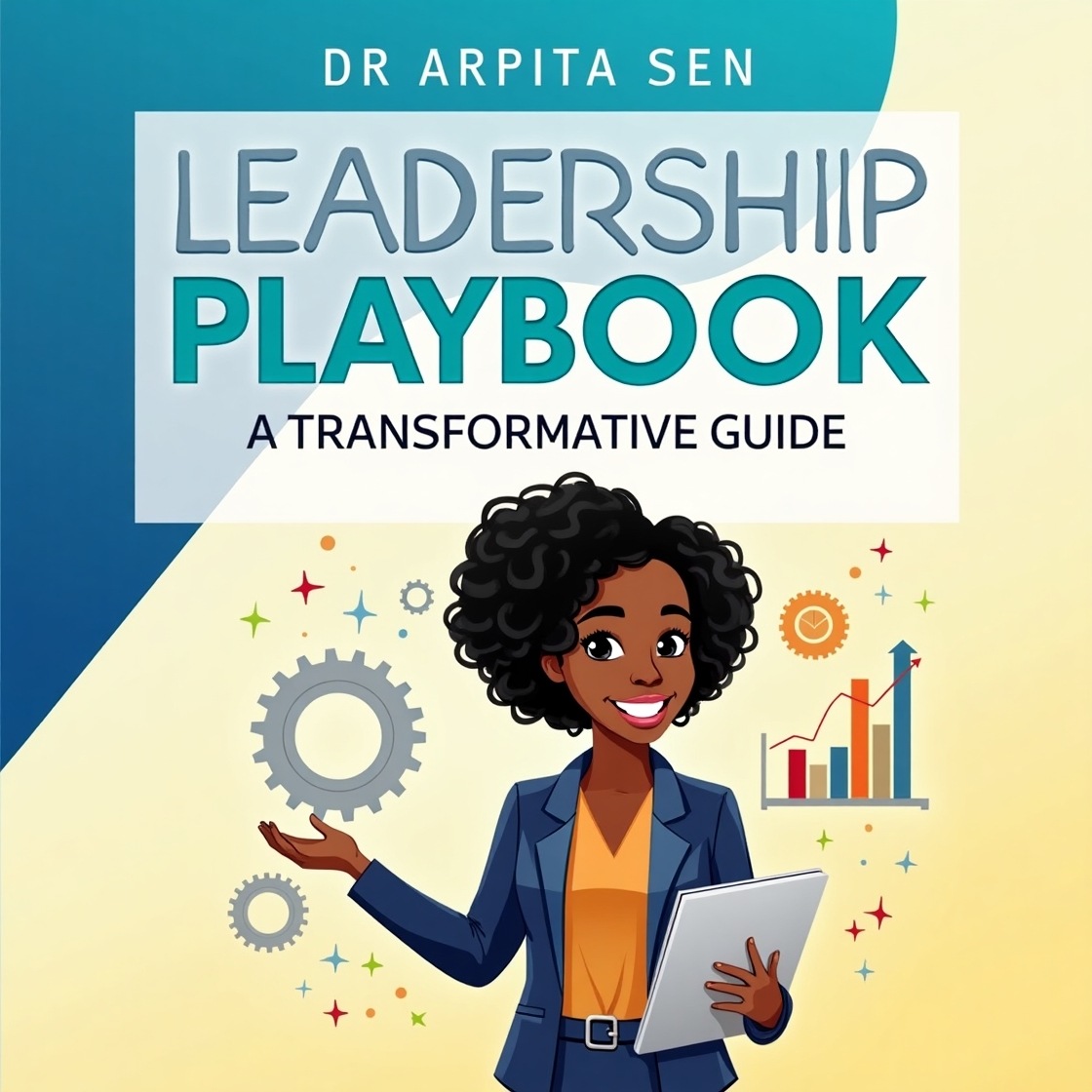In the fast-paced and ever-evolving landscape of Human Resources (HR), the adoption of agile methodologies has become increasingly crucial. Scrum and Kanban, two popular agile frameworks, offer HR professionals powerful tools to enhance efficiency, streamline processes, and foster continuous improvement. This article explores the necessity of Scrum and Kanban in HR, providing insightful examples of their application in various HR functions.

The Need for Agility in HR
Traditional HR processes often struggle to keep pace with the dynamic demands of the modern workplace. Agile methodologies, such as Scrum and Kanban, have emerged as essential frameworks to empower HR teams to adapt quickly, respond to changing priorities, and deliver value to the organization and its employees.
The Scrum Advantage in HR
Scrum is an agile framework that emphasizes collaboration, transparency, and adaptability. Originally designed for software development, its principles can be effectively applied in HR to manage projects, enhance team communication, and improve overall productivity.
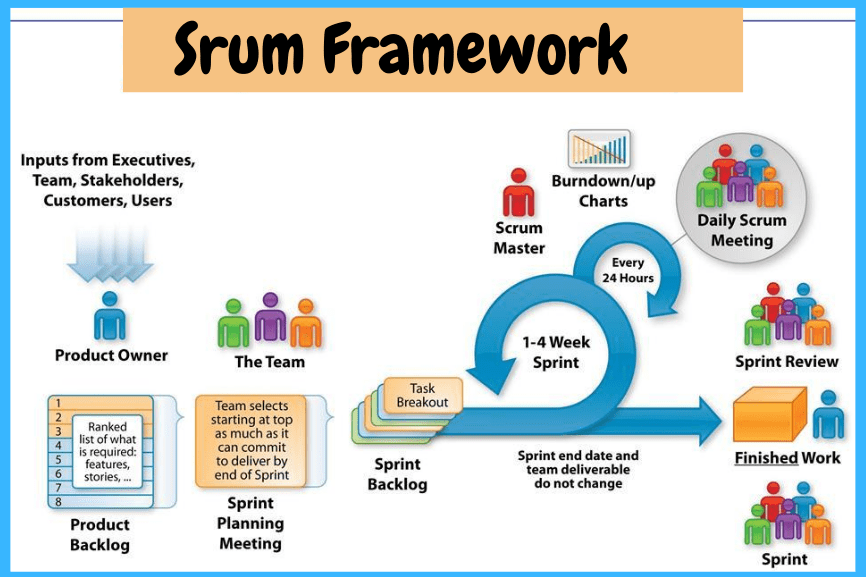
1. Example: Agile Recruitment
- Challenge: The HR team faces a high volume of open positions, diverse hiring requirements, and rapidly changing market demands.
- Scrum Application: The team implements Scrum to break down the recruitment process into manageable iterations called sprints. Daily stand-up meetings keep everyone aligned, backlog grooming sessions refine priorities, and sprint reviews provide opportunities for continuous improvement.
- Outcome: The HR team achieves a streamlined recruitment process, adapts swiftly to changing hiring needs, and enhances collaboration among team members.
2. Example: Performance Management Sprint
- Challenge: The annual performance review process is time-consuming, often leading to delayed feedback and dissatisfaction among employees.
- Scrum Application: The HR team adopts Scrum to transition from annual reviews to shorter performance management sprints. Regular feedback sessions, retrospective meetings, and constant communication ensure a more dynamic and responsive performance management process.
- Outcome: Employees receive timely feedback, fostering continuous improvement, while HR gains the flexibility to adapt performance criteria based on evolving organizational goals.
The Kanban Approach in HR
Kanban is an agile methodology focused on visualizing work, optimizing flow, and minimizing work in progress. It is particularly beneficial for HR functions that require a balance between stability and adaptability.
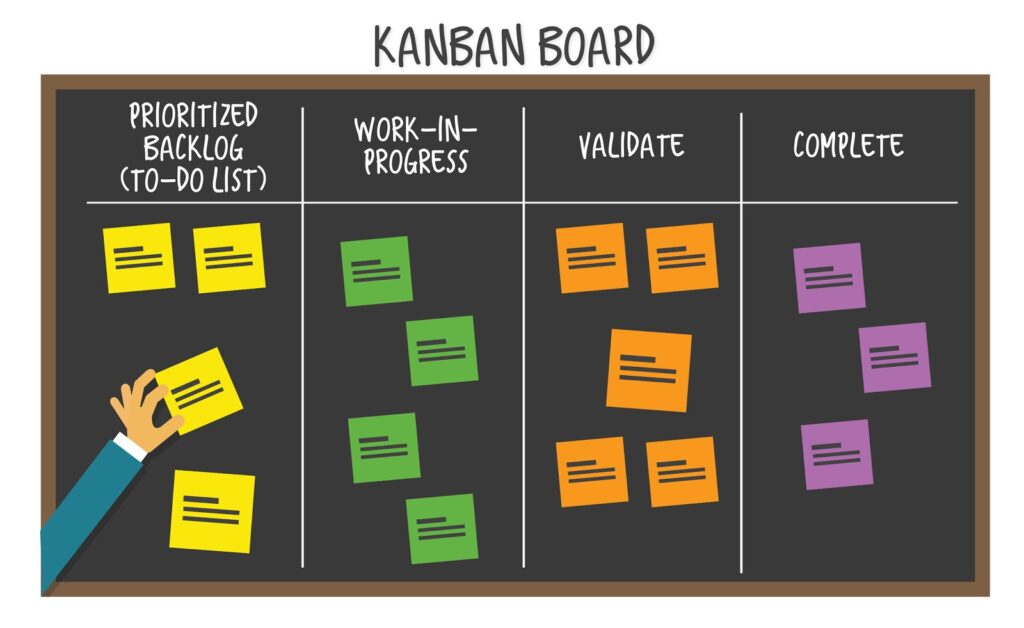
1. Example: Employee Onboarding
- Challenge: The onboarding process involves multiple stakeholders, often leading to bottlenecks, delays, and a lack of transparency.
- Kanban Application: The HR team implements a Kanban board to visualize each stage of the onboarding process. Tasks move through columns representing different stages, from document collection to training, providing transparency and enabling the team to optimize workflow continuously.
- Outcome: HR gains a real-time view of onboarding progress, identifies and resolves bottlenecks promptly, and ensures a smoother onboarding experience for new employees.
2. Example: Training and Development
- Challenge: HR faces challenges in managing training programs efficiently, tracking employee progress, and ensuring the timely completion of required courses.
- Kanban Application: A Kanban system is introduced to track training programs. Each training module becomes a task card on the Kanban board, allowing HR to monitor progress, identify overdue courses, and adapt the training plan based on employee needs.
- Outcome: HR ensures that employees receive timely training, adapts the curriculum to meet changing skill requirements, and maintains a flexible and efficient training program.
Why Scrum and Kanban Work in HR
- Enhanced Collaboration: Both Scrum and Kanban promote collaboration within HR teams. Daily stand-ups, sprint planning sessions, and Kanban boards ensure that everyone is on the same page, fostering a culture of open communication and shared accountability.
- Adaptability to Change: The iterative nature of Scrum and the visual workflow optimization of Kanban provide HR teams with the flexibility to adapt swiftly to changing priorities, market conditions, and organizational needs.
- Focus on Continuous Improvement: Scrum’s sprint reviews and retrospectives, along with Kanban’s emphasis on optimizing flow, create a culture of continuous improvement within HR. Teams can regularly reflect on their processes, identify areas for enhancement, and implement changes to increase overall efficiency.
- Increased Transparency: Kanban boards and Scrum artifacts like burn-down charts enhance transparency within HR processes. This transparency not only helps in identifying bottlenecks but also enables stakeholders to have a real-time understanding of ongoing activities.
- Empowering HR Professionals: By providing a structured yet flexible approach, Scrum and Kanban empower HR professionals to take ownership of their processes. This empowerment leads to increased job satisfaction, higher productivity, and a sense of ownership in achieving organizational goals.
Scrum and Kanban: A Dynamic Duo
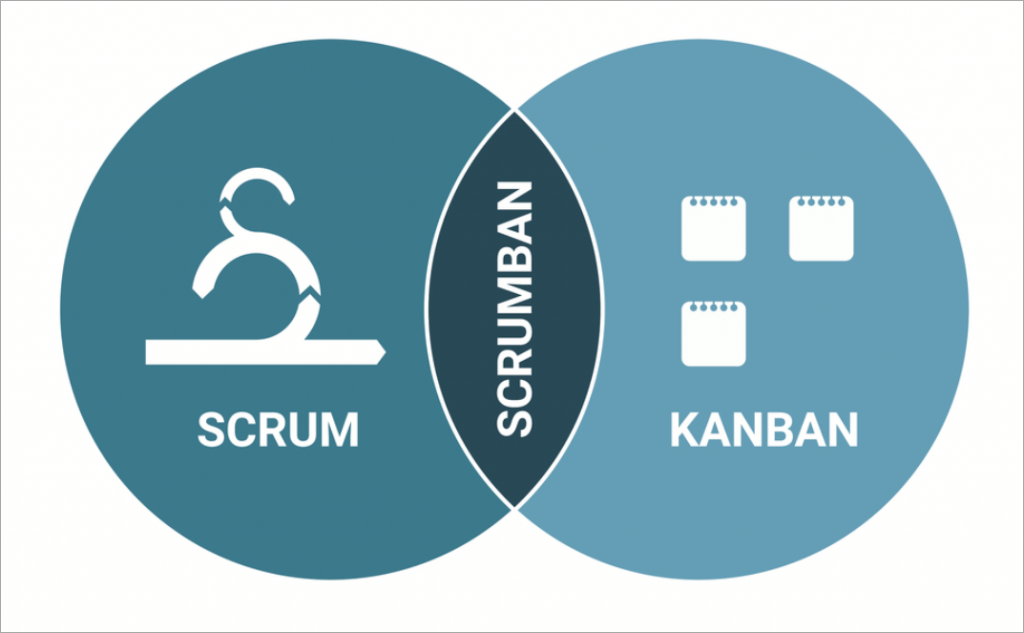
While Scrum and Kanban have distinct characteristics, some organizations find success in combining elements of both frameworks, creating what is often referred to as Scrumban. This hybrid approach allows HR teams to leverage the strengths of both methodologies, providing the structure of Scrum with the flexibility of Kanban.
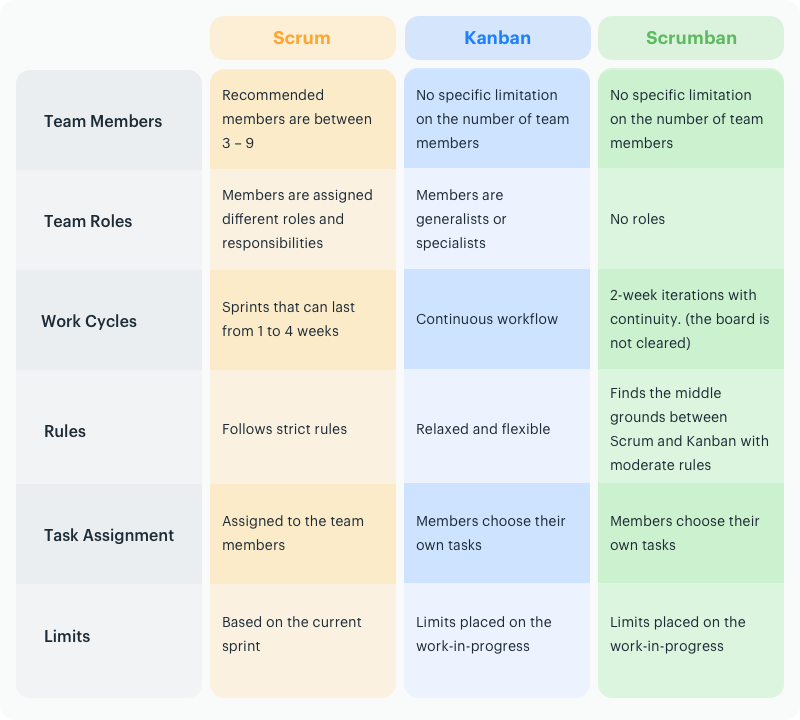
Conclusion
In the rapidly evolving field of Human Resources, the need for agility has never been more apparent. Scrum and Kanban, with their collaborative, adaptive, and continuous improvement-oriented principles, offer HR professionals powerful tools to navigate the challenges of modern workplaces. By embracing these agile methodologies, HR teams can not only streamline their processes but also foster a culture of innovation, collaboration, and continuous learning. Whether it’s recruitment, performance management, onboarding, or training, the application of Scrum and Kanban in HR is a strategic move towards building a more responsive and efficient HR function that contributes significantly to organizational success.
